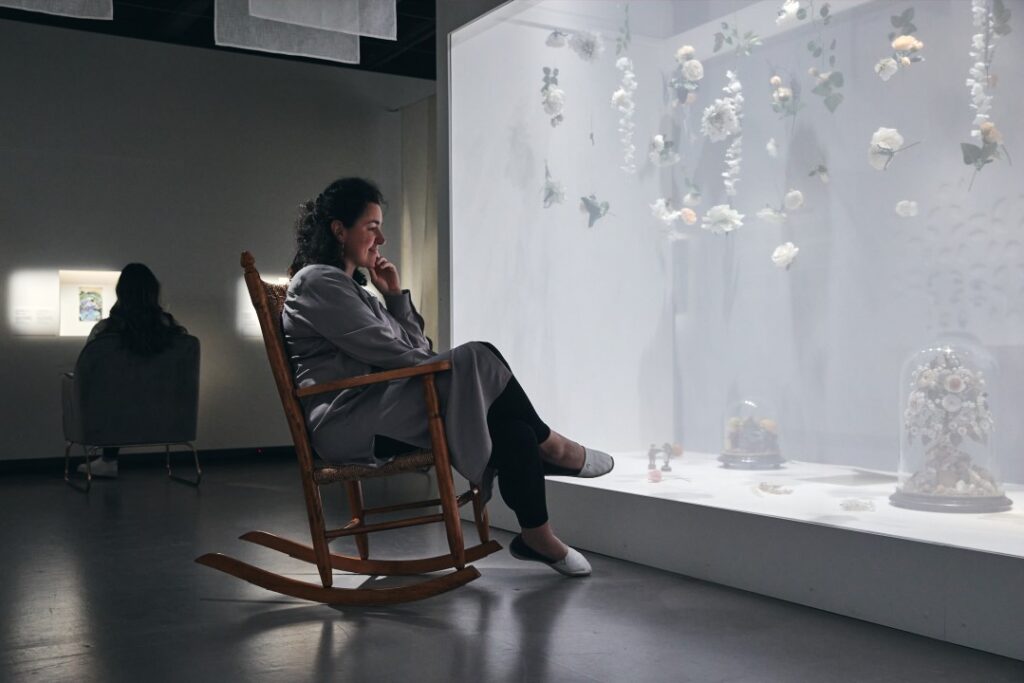Complete your own annual review
To complete your own annual review can help you align your actions with your goals. This exercise helps you identify what’s working well and what’s not so well in your personal and professional life. It also highlights your priorities, the skills you need to develop and the habits you need to adopt to achieve your full potential. It’s essential for learning from your mistakes, but also for celebrating your successes and planning the steps towards a future that matches your needs and desires. So, if you’re not quite sure where to start, we’d like to offer you some food for thought to get you off to a good start.

A compass for your personal growth
Before you begin this introspective exercise, we invite you to make yourself comfortable in a quiet place. To put yourself in a state of mind conducive to reflection, why not light a candle and wrap yourself in a soft blanket?
First, here are a few questions to ask yourself as you begin this thought process:
1. Review the goals you previously set
- What were my main goals for this year?
- Did I achieve them? If so, how? If not, why not?
- What obstacles did I encounter in pursuing these goals?
- What lessons can I draw from my successes and failures?
2. Reflect on your personal achievements and challenges
- What were my greatest achievements this year?
- In what areas have I made the most progress?
- What were my greatest challenges or difficulties?
- How did I overcome these obstacles?
3. Think about your general well-being
- How would I assess my overall level of happiness this year?
- Have I maintained a good balance between my professional and personal life?
- Have I paid enough attention to each of the pillars of my holistic health: physical, mental, emotional and spiritual?
- What habits have contributed positively to my well-being?
- When did I fail to listen to the voice of my heart or my intuition?
4. Examine your relationships
- What relationships have given me the most this year?
- Have I devoted enough time to those closest to me?
- Are there any relationships I’d like to cultivate more?
- How did I handle conflicts or tensions in my relationships?
5. Evaluate your personal growth
- What new skills have I acquired this year?
- What books, training courses or experiences have contributed most to my growth?
- In what areas do I feel the need to deepen my knowledge?
- How did I put my new learning into practice?
Analyzing your performance… with kindness
It’s crucial to understand that performance is not an absolute measure of our worth, but rather an indicator of our progress and learning.
Professor and lecturer Brené Brown stresses the importance of dissociating our results from our self-esteem1. The key lies in adopting a constructive approach in which we observe our results with curiosity and benevolence, without falling into destructive self-criticism.
Think of performance as a dynamic dashboard: it’s not the numbers that count, but what you learn from analyzing them. It’s about understanding that what we sometimes think of as “failures” are nothing other than learning opportunities.
Rather than judging yourself harshly, ask yourself: “What is this experience trying to teach me?”. This perspective transforms judgment into understanding, criticism into growth, and turns your annual review into a moment of self-discovery.

During this introspective exercise, it’s important to maintain a caring attitude towards yourself. In her podcast, Nicole Bordeleau, a well-known author and speaker in the field of personal growth, stresses the importance of having a kind self-talk.
“Self-compassion helps us to heal and greatly transform the relationship we have with ourselves.”
A few questions inspired by her approach2 to cultivating kindness towards yourself:
- How can I celebrate my successes, even the smallest ones?
- What positive lessons can I learn from my mistakes or failures?
- How can I forgive myself for the times when I haven’t lived up to my expectations?
- How can I practice self-compassion on a daily basis?
Every experience, whether successful or challenging, becomes an opportunity to learn and evolve. By observing your journey with curiosity and compassion, you cultivate a resilient and positive mindset, essential for navigating life’s ups and downs.
Planning the year ahead
Then use the answers to your questions to set realistic goals that are aligned with your desires and needs.
Here are some tips to guide you:
- What are my three main goals for the coming year?
- What skills do I need to develop to achieve them?
- What positive habits do I want to cultivate?
- How can I integrate, or increase, well-being and balance in my life?

To help you along the way, here are a few ideas:
- Write in a journal: record your thoughts and progress throughout the year.
- Listen to a podcast: find inspiration and motivation by listening to a podcast that matches your goals or interests.
- Read about personal growth: “Your Second Life Begins When You Realize You Only Have One” by Raphaëlle Giordano or “Fear” by Thích Nhất Hạnh are excellent reads to deepen your introspection.
- Do a walking meditation: take the opportunity to observe your thoughts, letting them come and go, without judgment.
- Practice visualization regularly.
In short, to complete your own annual review is a powerful exercise that allows us to step back, appreciate our successes and learn from our experiences. By adopting a caring and structured approach, we can transform this exercise into a springboard to a new year filled with growth and fulfillment. Remember, the annual review is just one step. The real work begins when you implement the lessons you’ve learned and the goals you’ve set. Be patient with yourself, celebrate every little bit of progress, and remember that the path to fulfillment is a marathon, not a sprint. So, take the time to sit down comfortably, perhaps with a comforting cup of tea, and begin your annual review. You’ll be amazed at how much you’ve accomplished and how much you’re capable of achieving.
Sources:
